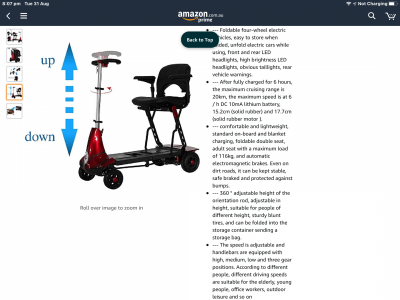SDC Rewards Member
Upgrade yours now
M
Advice to avoid the increasing phone scams? Just Hang Up.
A new consumer survey reveals that almost 90 percent of Australians have received at least one unwanted call every week with 10 percent of them receiving more than ten nuisance calls each week, according to Crime Stoppers (NSW).
Scam activity has caused sizeable social and economic impacts on Australians as reports revealed that a total of $66.8 million in financial losses has been linked to scams, according to the Australian Competition and Consumer Commission’s Scamwatch. What’s more alarming is that the financial losses were only recorded from 120,279 reports between 1 January 2021 and 3 October 2021 — which translates to an increase of 104 percent in losses and an 87 percent increase in reports.

The rise in phone scams has left Australians suffering a financial loss of $66.8 million. Credit: Unsplash/ Norwood Themes
Scammers’ New Tricks
Phone calls are becoming the most popular method for scammers to reach consumers. In fact, scammers are innovating ways to trick people into taking their calls. One of such tricks is Caller ID spoofing where scammers disguise their identity; scammers calling from outside of Australia mask their phone numbers by displaying Australian phone numbers, including an Aussie mobile number, to increase their chances of you picking up their call.
Some people reported that they get calls from their own phone numbers while some get notified that their valid phone numbers are being reported for their phone scam activities — which means that scammers used their phone numbers to make nuisance calls.
The scam phone call activity has been disruptive and has impacted the productivity of Australians. What’s more frustrating is that there is no single solution to this issue; blocking a phone number would only lead to avoiding phone calls from that specific number.
Just Hang Up
NSW Crime Stoppers launched ‘Just Hang Up’, a new campaign that aims to minimise the incidence of Australians falling victim to phone scams.
NSW Crime Stoppers CEO Peter Price AM said that the chances of legitimate institutions to ask probing and personal questions in an unsolicited phone call is zero.
‘The questions may seem harmless, but they build a picture of you, where your finances are, your financial situation and other personal details that allow them to impersonate you and extract money,’ Mr. Price said.
He added: ‘Hanging up may be the difference between being scammed or not’.
‘Our message to the community is simple: Just Hang Up.’
‘Reputable organisations like financial institutions and the ATO will never ask you for passwords or for access to your computer, just hang up.’
Just Hang Up is the proposed solution for the issues identified from the data presented in the consumer survey: more than 68% of those who received unwanted calls have been asked for access to their computer or asked for credit card details, more than 50% engaged with the scam phone call before eventually hanging up, and in 5% of the reported cases, people have given out the information they’re being asked.
Tips from Just Hang Up:
- Just hang up if there is a distinct delay when you pick up the phone and the person does not announce who they are before starting the conversation.
- Just hang up if the person asks for your personal information in an unsolicited call.
- Call the organisation the caller claimed to be from using contact details you independently obtained, via Google search, for example, to check if the call is legitimate. Never use the contact details associated with the call.
- Never give out any personal information.
- Report to your bank if you've given away any banking details and report the incident to Scamwatch.
- Let your family and friends know about your experience. Awareness can help others avoid scams.
Last edited by a moderator:






